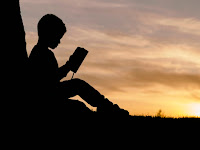Below is the email I got from my U.S. Representative when I asked about the President’s Greenland policy. See my post on Substack about this topic.
https://open.substack.com/pub/bloom2/p/bullies-r-us-revised
Dear Mr. Bloom,
Thank you for contacting me regarding Greenland and for sharing your thoughts on this issue.
President Trump has raised the question of Greenland to spark a serious conversation about U.S. national security and long-term strategic interests, particularly in the Arctic. As global competition intensifies, it is prudent for the United States to evaluate how developments in this region affect the safety, security, and prosperity of the American people.
The Arctic is becoming increasingly important due to new shipping routes, military positioning, and access to critical natural resources. Russia continues to expand its Arctic military footprint, and China has made clear its intention to gain influence in the region, including through investments tied to critical minerals. These realities have direct implications for U.S. homeland security and economic resilience.
Greenland occupies a uniquely strategic position between North America and Europe. The United States already plays a leading role in Greenland’s defense through Pituffik Space Base, which supports missile warning, space surveillance, and early defense capabilities essential to protecting the U.S. homeland. In many respects, the United States is already the primary security partner responsible for safeguarding Greenland against modern threats.
In addition, Greenland possesses significant deposits of rare earth minerals and other strategic resources that are vital for defense systems, advanced manufacturing, and emerging technologies. Ensuring secure and reliable access to these materials strengthens American supply chains and reduces dependence on adversarial nations, benefiting workers, manufacturers, and consumers across the country, including in Indiana.
An “America First” approach means being proactive anticipating future challenges, protecting U.S. interests, and ensuring that strategic regions near our homeland do not fall under the influence of hostile powers. President Trump’s comments reflect that forward-looking mindset and the importance of thinking seriously about long-term security and economic stability.
Thank you again for reaching out. If you have any more questions or concerns do not hesitate to reach out to my office at (202) 225-4436 or visit my website at Stutzman.house.gov.
Sincerely,
Rep. Marlin Stutzman
Member of Congress
Washington D.C. Office
404 Cannon House Office Building Washington, DC 20515
Fort Wayne Office
6714 Pointe Inverness Way,
Suite 220,
Fort Wayne Indiana, 46804




